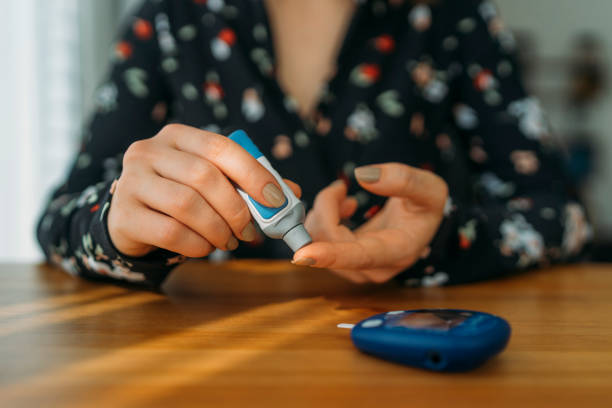Can whole grain products or a vegan diet reduce the risk of type 2 diabetes? Several scientific findings confirm this. But other factors are also important. Here you can find out more about the most important findings.
Unlike type 1 diabetes: type 2 diabetes can be prevented
“Insufficient physical exercise and an unhealthy diet can be the cause of type 2 diabetes,” warns the German Diabetes Aid on its website. In type 2 diabetes there is a “relative insulin deficiency”, which means that the body cells respond less well to the insulin. The pancreas tries to compensate by releasing more and more insulin. Overall, 90 percent of all diabetics are affected by type 2 diabetes – as a result of years of unhealthy lifestyle.
“While type 1 diabetes – in which there is an absolute lack of insulin – cannot be prevented, the situation is very different with type 2 diabetes: with a healthy lifestyle, type 2 diabetes can be delayed or even prevented completely,” writes the non-profit health organization.
In addition to sufficient exercise, the key to success is a balanced diet. For example, an occasional abstinence from meat is said to reduce the risk of diabetes.
Reduced risk of diabetes when eating whole grain products
Numerous studies in the past have found that diet plays an important role. A group of experts analyzed these results in more detail and summarized the results of the studies and evaluated their significance.
To do this, the research team led by Dr. Sabrina Schlesinger, head of the Systematic Reviews junior research group at the DDZ, carried out a comprehensive literature search on nutrition and type 2 diabetes. Food, beverages, minerals and vitamins were also brought into focus.
A total of 153 study results were identified that showed the link between dietary factors and type 2 diabetes, the release said. A high level of significance for a reduced risk of diabetes could be demonstrated for a high consumption of whole grain products, in particular cereal fibres, and a lower consumption of sugary drinks and red meat, in particular processed meat such as sausages. A moderate significance was determined for 22%, a low for 60% and a very low for 14% of the connections.
“This systematic review shows that the connection between diet and type 2 diabetes has already been investigated in numerous studies and that diet plays a role in the prevention of type 2 diabetes. However, there is uncertainty as to the validity of many of these connections.” , will Dr. Sabrina Schlesinger quoted in the communication. Therefore, further valid studies on this topic would have to be carried out.
Vegan diet protects against type 2 diabetes
More than 300,000 people took part in this study. Research found that participants on a plant-based diet were significantly less prone to obesity and type 2 diabetes. But why is that? Vegan foods are rich in antioxidants, which protect against diabetes. These improve sensitivity to insulin – the hormone that regulates blood sugar. In addition, a vegan diet reduces weight gain and helps fight inflammation.









